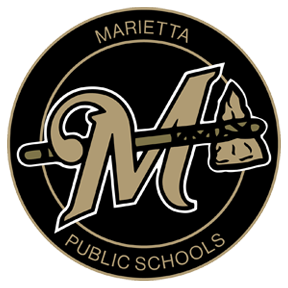According to a new report from the National Institute for Early Education Research, Oklahoma ranks fifth in the country for Pre-K access for four-year-olds. We also rank in the top 11 states for quality Pre-K programs and for investment in those programs. Oklahoma is one of only five states in the country that pays for high-quality, full-day Pre-K and is one of few states that require its Pre-K teachers to hold a bachelor’s degree with teaching certification. In 1988, Oklahoma became only the second state to offer Pre-K for all four-year-olds, with 99 percent of school districts participating.
Yet with all the investment in and emphasis placed on Pre-K, there are still some people in Oklahoma who choose not to send their children to school for Pre-K.
“During the pandemic, some parents haven’t sent their children to Pre-K because of health concerns, which is understandable” said Marietta’s Primary Principal Ann Rutledge, “but I think people don’t realize how important Pre-K is. Historically, Pre-K was thought of as ‘play time’ or even like a daycare and not necessary or required. But Pre-K is essential in creating a strong foundation for educational achievement.”
Building blocks for that strong foundation are many and varied. Although it may be difficult for parents to think of sending their “babies” off to school at such a young age, if they’re looking for reasons why Pre-K is important, the list is lengthy.
- Pre-K helps children develop useful skills. For many students, Pre-K is the first time they’ve spent much time outside their home with children and adults other than family members. In Pre-K they have an environment that provides opportunities to make friends, cooperate, listen, and build language skills. It allows them to develop motor skills. And Pre-K teaches children how to take care of themselves and each other.
- Pre-K boosts pre-literacy skills and a foundation for math. It may seem far-fetched, but through songs and activities, children learn their alphabet and basic phonics, along with an understanding of numbers.
- Pre-K fosters creativity and curiosity. The Pre-K classroom is set up to encourage exploration, helping children to become active, lifelong learners.
- And, although there are many others, perhaps the most important is that Pre-K prepares children for kindergarten.
“Kindergarten isn’t the same as it was 20 years ago,” said Christina Conway, Pre-K teacher. “The days are longer, and academics are tougher. In Pre-K, we give children the time to grow and strengthen social and emotional development, fine and gross motor skills, and self-help skills, all while teaching basic academic skills to get them ready for kindergarten. By providing this solid foundation, we are setting them up for success in the future.”
Tammy Blevins, another of Marietta’s Pre-K teachers points to the ever-increasing standards demanded of students in early childhood classes.
“Expectations in Oklahoma kindergarten classrooms have impacted necessary school readiness skills for incoming students, so our Pre-K students are taught about classroom routines and procedures, as well as foundational math and reading concepts,” said Blevins.
“Research has shown that students who attend Pre-K demonstrate significant gains in language development and social skills. As technology use has increased in younger children, we’ve also noticed a decline in fine and gross motor skills, shorter attention spans and poor social interaction. In Pre-K, we try to meet those readiness needs, too,” she continued.
If Pre-K is all about getting kids ready for kindergarten, who would better understand its importance than a kindergarten teacher?
“I could write a book on the importance of Pre-K,” laughed Marietta veteran teacher Heather Cummings. “I’ve been teaching kindergarten for 25 years, and the expectations have increased dramatically. When kids don’t go to Pre-K, kindergarten is a struggle for them from day one.
“I tell people all the time, every grade level has evolved into the next, meaning that kindergarten now is really more like what first grade was 15 or 20 years ago.”
Lacee Ballard, also a kindergarten teacher at Marietta, believes in the value of Pre-K, not only because of the educational, motor, and communication skills developed, but because it creates an easier transition from the home environment or day care into the school environment.
Let’s face it, starting school is a bit of a shock to the system for most kiddos. Kids who go to Pre-K get that over with, so when they start to kindergarten, they start knowing what lies ahead of them and they’re prepared for it.
“Of course, COVID has taken its toll on all grade levels, and we are seeing kids coming back from a virtual year and they really need to be in the classroom,” Cummings added. “I would never fault a parent for making the choice to prioritize their child’s health and keep them at home. But the bottom line is this: Pre-K is literally the foundation for every other year of that child’s school career. It is THE most important year for them developmentally.”
